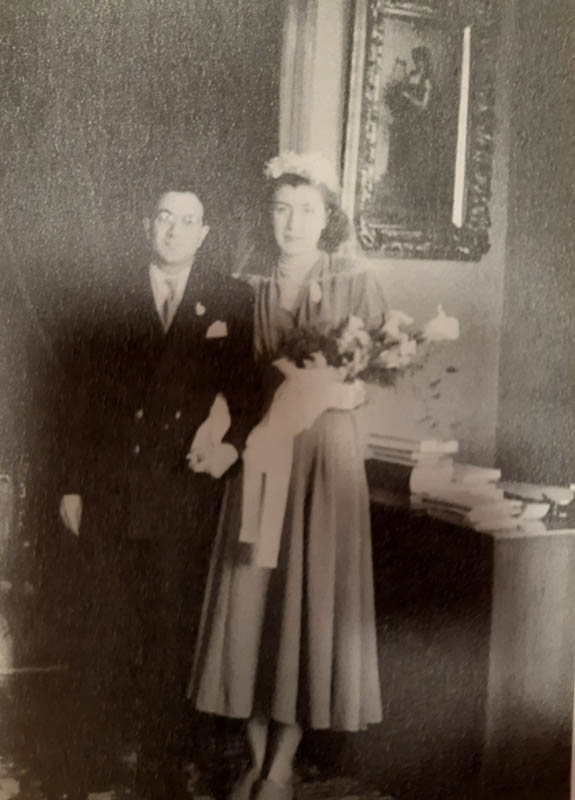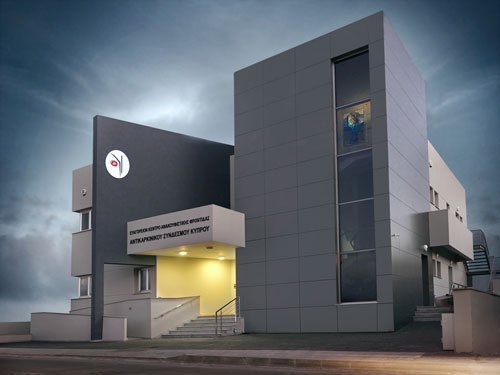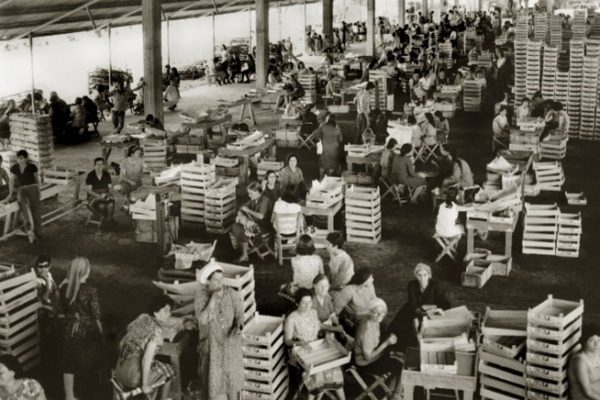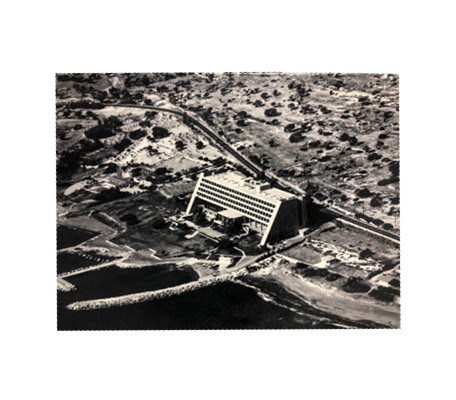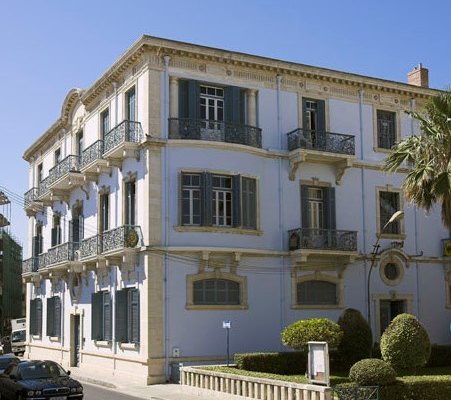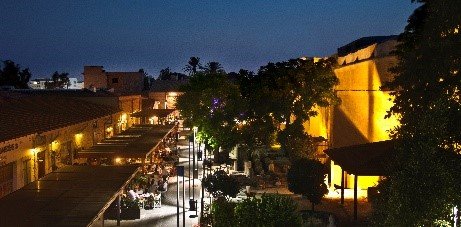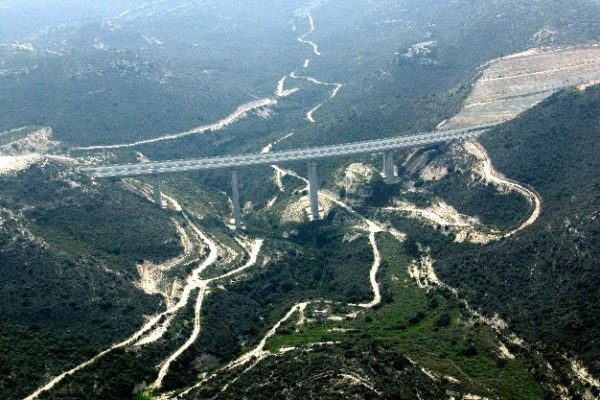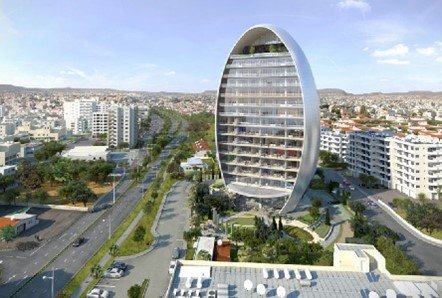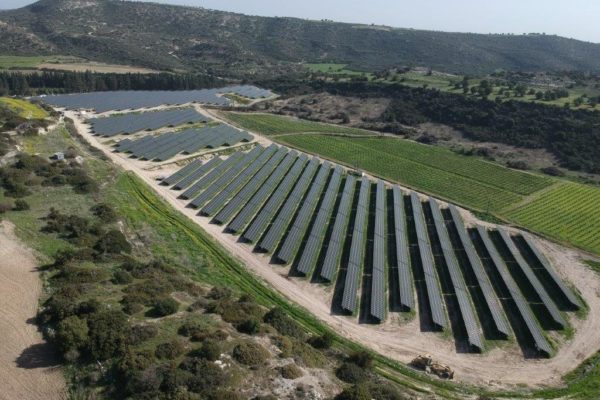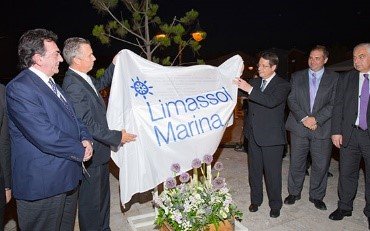
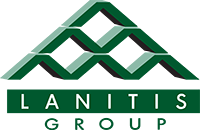
A Group
that is a history in itself
The Lanitis Group carries a history of almost one and a half centuries and it’s been 125 years since the establishment of N.P.Lanitis and Co. The Group is rooted in the 18th century and Panayis Sykas from Lania, later known as Panayis Lanitis.
Innovators and leaders
The Lanitis Group carries a history of almost one and a half centuries and it’s been 125 years since the establishment of N.P.Lanitis and Co. The Group is rooted in the 18th century and Panayis Sykas from Lania, later known as Panayis Lanitis.
Panayis Sykas-the founder
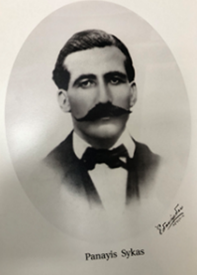
Panayis Sykas.
Poverty forced Panayis Sykas to leave his native Lania towards the end of Ottoman rule in 1878 and settle in Limassol where his name became established as Panayis Lanitis, after his place of birth.
Following the end of Turkish occupation and the start of British rule (1878), he settled in Limassol and changed his name to Panayis Lanitis. He married Angelica Kyza, daughter to a long standing Limassol family. They had five children. Three daughters (Elegko, Antigoni and Kleio) and two sons, Nicholas.P.Lanitis and Costas.P.Lanitis (father to Evagoras.K.Lanitis).
Panayis’ children, Costas and Nicholas later took on the business activities of their father.
Panayis Lanitis gave his children the best education he could. In 1880 they graduated from the Greek Scholarchy and Panayis then sent them to Beirut to ‘learn foreign languages and acquire trade knowledge and knowhow’.
Upon their return to Cyprus, they went into commerce with an initial capital of 2 thousand napoleonic coins, provided by their father.
At the outset, Nicholas became active at his father’s business on Koumandarias street, while at a young age, Costas.P.Lanitis is sent to Symi and then Chios, to sell Cyprus wines to the Turkish army.
It was ill fated however. Two ships that were carrying the Costas.P.Lanitis merchandise, sink in open sea and Costas is forced to close down his business and return to Cyprus.
Panayis Lanitis dies prematurely in 1905 and his children Costas and Nicholas take over.
N.P.Lanitis and Co is born
The two brothers, according to a historic speech by Evagoras Lanitis in June 1989 on the 110th anniversary of the Group’s establishment, first see to the marriage of their three sisters. And as they later recount, that cost them to the point that they didn’t have enough to buy bread.
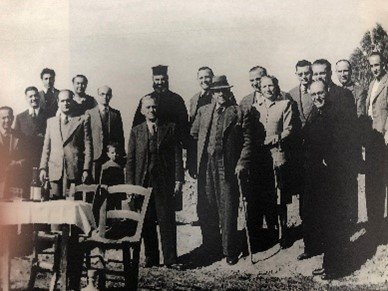
A Lanitis family photo from the 30s. Costas.P.Lanitis and Nikos.P.Lanitis in mid-picture.
Nicholas owned a Credit Foncien bond which he put up as collateral to the Ottoman Bank, receiving 12 pounds, the capital for the establishment of the N.P.Lanitis & Co partnership in 1896.
Nicholas and Costas were two very different personalities, but this never stood in their way of a great partnership for more than half a century.
N.P.Lanitis was the business mind, perceptive and creative, with C.P.Lanitis being the organiser, implementing the projects. One completed the other.
The golden rule
The Lanitis Group has always been committed to values and principles. That is exactly why Evagoras.C.Lanitis, in a 1989 speech, chose to pick out a certain paragraph in the founding document of N.P.Lanitis and Co: ‘If any of the partners, during the company’s existence, gambles repeatedly and despite repeated reprimands and calls to the contrary or displays immoral behaviour, is subject to expulsion from the company, with whatever compensation they are entitled to’.
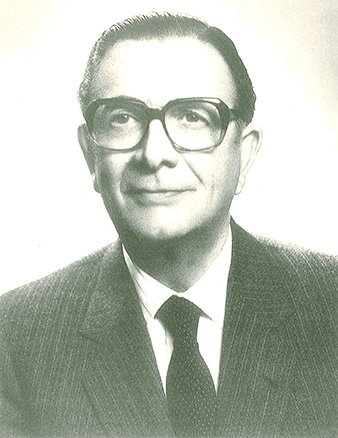
Evagoras.K.Lanitis
‘This term’, Evagoras.C.Lanitis noted, ‘remains the golden rule for us to this day. The prohibition of gambling and immoral behaviour, in other words, honesty under any circumstances, I believe was the key to the success of our group during the 110 years of its life’.
The early decades
The launching of the Lanitis brothers business activity coincides with the economic boom in Cyprus during the early decades of British rule.
In 1878, annual imports to the island amounted to around 300 thousand pound sterling, with exports at 198 thousand. Three decades later, in 1908, imports rose to 618 thousand pound sterling and exports at 653 thousand.
The two brothers continued trading along the lines and philosophy of their father, but soon realised the need for an organisation in which people could deposit their savings.
In 1901, along with other prominent citizens of Limassol, they founded the Limassol Popular Savings Bank (which later evolved into the Popular Bank). In 1924, the Limassol Popular Savings Bank, in accordance with the relevant company legislation, turns into the first bank in Cyprus, the Popular Cyprus Bank.
The central pillar
During the First World War, N.P.Lanitis and Co trades in almost all Cypriot products of the time, such as wine, raisins, carobs, almonds and others.
As Evagoras.K.Lanitis notes, ‘comparatively, for the time, they earned quite a bit of money that they invested into their business’. This is how they managed to withstand the financial crisis of the post WW2 years.
Investing profit as a priority is one of the central pillars of the Group’s successful development.
‘The company’s income firstly belongs to those working in the business, followed by the business, to be invested for its development and lastly to the owners of the business’, Evagoras Lanitis used to stress.
Τhe ‘wasteland’ of Amathus
Business perception always distinguished the Lanitis Group. In 1927, brothers Nicholas and Costas established the Cyprus Wine Company (KEO), along with the Greek Wine Company and others, having a share of 45%. They subsequently left KEO in 1950.
In 1933, Costas and Nicholas Lanitis bought farmland at the Alektora and Kouklia communities in Paphos, part of which makes up Aphrodite Hills Golf Resort today.
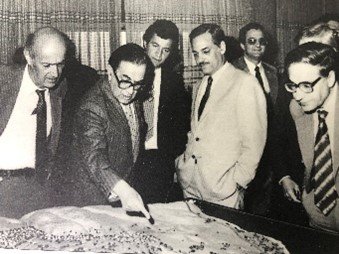
A presentation by Evagoras Lanitis of the blueprints for the creation of Aphrodite Hills, 1985.
Business perception was always at play. Another example is buying the land on which Amathus hotel was later built, opening its doors in October 1973. The area was purchased for 22 thousand Cyprus pounds, an amount considered quite high for the land in question.
At the time, as Evagoras.C.Lanitis said, many people wondered ‘who was crazy enough to pay such an amount to buy this wasteland’?
1936 – 1945
In 1936, following an initiative by Nicholas.P.Lanitis, sees the start of the Lanitis Farm creation, today’s Lanitis Farm Ltd. This was an area of over four thousand square meters, west of Limassol that was mostly a marshland at the time. The land was restructured and planted, amongst others, with table wine variety vineyards and citrus plants.
The Fasouri Watermania Waterpark was also later built on this particular plot of land.
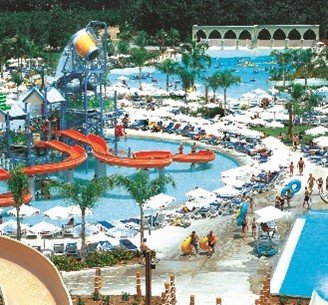
The Fasouri waterpark which opened in 1998.
1943 sees the establishment of the Amathus Shipping Company Ltd, today known as Amathus Public Ltd, active in the tourism, travel and transport sectors.
The Lanitis brothers’ involvement in shipping goes further back in time. At the turn of the century, along with other Limassol businesspeople they established another company with three ships. ‘Salamis’, ‘Nicosia’ and ‘Cyprus’. The financial woes of WW1 however, forced the company to sell off its ships.
Failures did not discourage the two brothers. During WW2 they operated as agents for a number of shipping companies, before founding Amathus Ltd in 1943.
Their smart business moves continued during WW2. They invested money into the purchase of a silk factory in Paphos, making silk for parachutes.
1945 saw the establishment of construction company Cybarco Ltd and later on Cybarco Developers one of the leading developers of luxury real estate in Cyprus. Cybarco Contracting is a company with major construction work under its belt, both in Cyprus and abroad.
The return of Evagoras Lanitis
Following its early decades, the Lanitis Group developed business opportunities which led to an impressive development and expansion of the Group. After the return of Evagoras.K.Lanitis to Cyprus with the conclusion of his studies in the late 1940s, things went into a new gear. Under the new, dynamic leadership of Evagoras.C.Lanitis, a huge upsurge follows. The group sets solid foundations and begins expanding in almost all sectors of the economy.
1952 sees the establishment of Lanitis N&E Estates Ltd, later renamed to Lanitis E.C. Holdings Ltd, a portfolio investment firm and the Grοup’s holding company.
The Amathus hotel is inaugurated in Limassol in 1973, followed by a new hotel in Paphos a few years later.
In 1990, Lanitis Development Ltd was founded, creating and developing Aphrodite Hills.
During the period mentioned above and beyond any other business ventures, the Group also invests in many other companies and projects either as majority or minority holder.
The 4th generation takes the reins
Following the death of Evagoras Lanitis in 1992, his children Platon, Costas and Marios Lanitis and Isavella Eliades, under the leadership of Platon.E.Lanitis, led the Group into the 21st century taking on new investments, offering new services and adopting modern methods in the fields of technology and management.
Heaven’s Garden Waterpark Ltd (owner of Fasouri Watermania Waterpark) is founded in 1998, following in 2000 by Lanitis Aristophanous.
In 2002, Aphrodite Hills is inaugurated and Carob Mill Restaurants established.
Lanitis Energy was founded in 2011 (with Lanitis Electrics, Conercon and Lanitis Gas as subsidiaries) and is mainly involved in the field of Renewable Energy Sources.
In 2012, final approval was granted for the development of the Limassol Greens Golf Resort, with construction beginning in 2020.
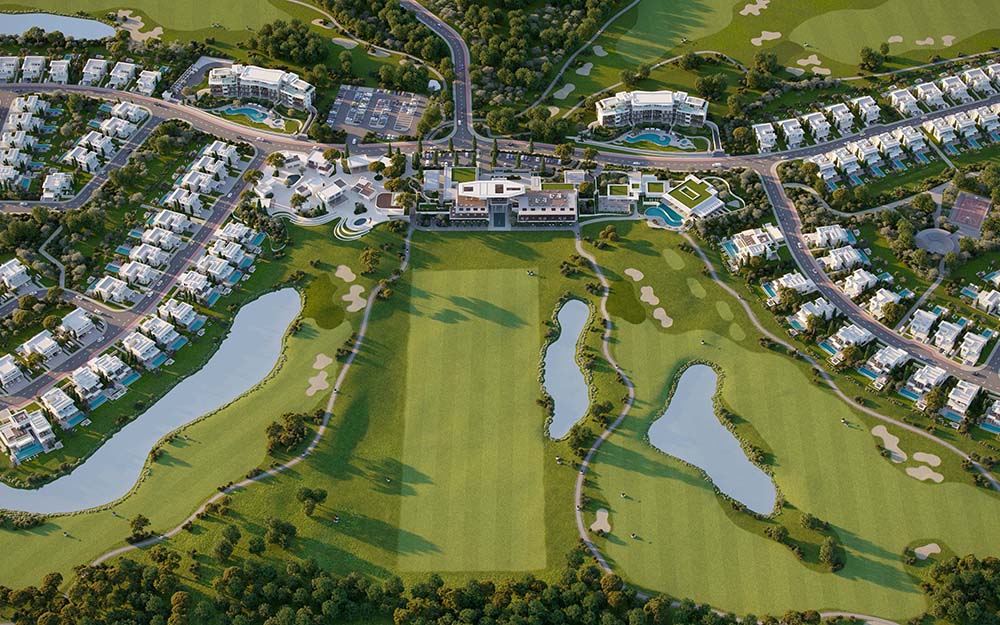
Limassol Greens
Business with a human approach
The Lanitis Group carries more than a century of history. It has charted a successful course in almost all sectors of the economy, without relinquishing social sensitivities.
Group Chairman Platon Lanitis unwinds the thread of time, opening up about the values and principles of the Group, revealing moments from his personal life that will never be forgotten.
What’s it like being at the helm of a Group with a 150 year history and such a prestigious quality name?
I don’t stand on my own in this Group. I’ve always had my brothers standing by me, taking most decisions collectively, certainly the most crucial ones. Not to mention working with quite a distinguished team of managers and associates, who are undoubtedly much better than us in their field of expertise.
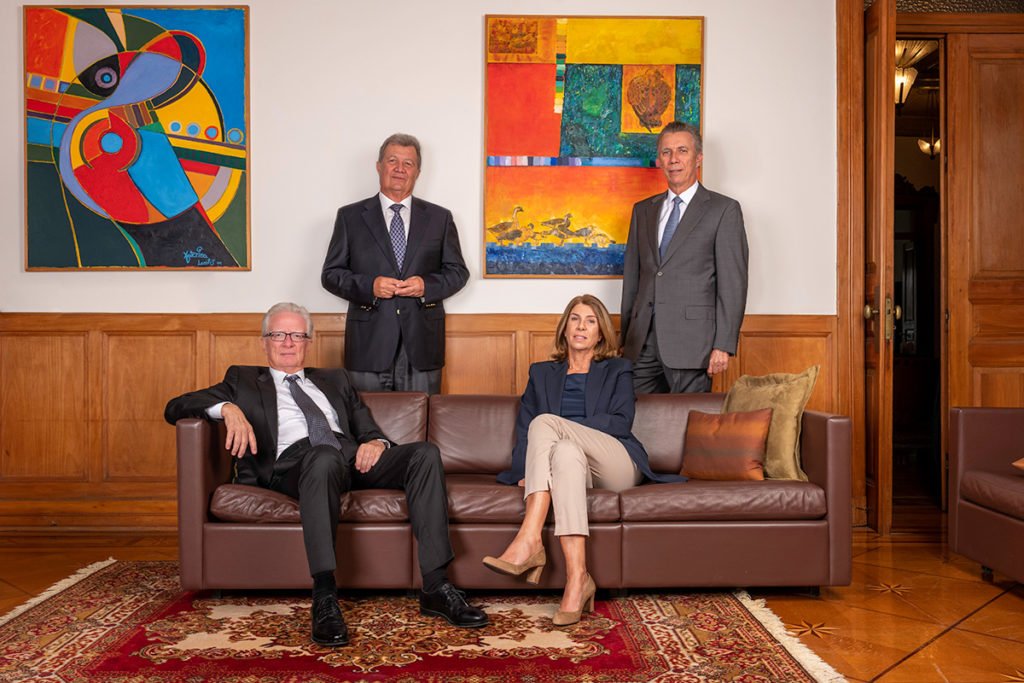
A recent photo of the Lanitis family 4th generation, leading the group today: Costas, Platon, Isavella and Marios Lanitis.
But you’re in charge. You have the final word and most of the responsibility.
One of the owners needed to step up and become Chairman of the Group. It fell to me, but we always worked as a team. We firmly believed in group work and collective effort. The business track is not a marathon, but a team relay.
Anthropocentric business
Through the history of corporations, their culture and DNA is forged. What is the culture and DNA of your Group?
We are an anthropocentric company, with a strong belief in the individual. Our most important asset are people who work with us.
And if I want to paint a picture, I would say that our Group is like a solid, sturdy stone wall, made of larger as well as smaller stones that are all necessary to keep it standing. Every stone is part of the structure, having its own particular role, but always being part of a whole. Our own contribution as owners to the day to day workings of the Group, is a constant effort to pass on both our experience and knowledge as well as the history and values of the Group; integrity, reliability, honesty, hard work and social contribution.
An emblematic work
What would you pick as the most important moment in the Lanitis Group long standing history?
It’s not just one moment, but many to go around. We certainly had really good times, but also tough ones. When it comes to the good, I could mention the construction of ‘Aphrodite Hills’. Along with distinguished partners and an experienced team of managers and personnel, we realised an innovative work for Cyprus at the time. It took the participation of almost all the companies in our group and each, through its own field of expertise, made a major contribution to the work’s implementation.
Why do you consider ‘Aphrodite Hills’ such an important, innovative project?
It was the first integrated resort in Cyprus, including a golf course. It combined everything. Luxury properties, a five star hotel, a professional level golf course, spa facilities, a tennis academy, restaurants and shops all within a large area in a unique location.
The 2013 crisis
And what would be the toughest moment?
I would say the financial crisis of 2013. Really difficult times, as most companies had to face unprecedented conditions.
The economy at rock bottom, high level of unemployment, destruction of the banking sector, foreign investors trust at an all time low, tourism issues. As a result we were forced into quite a tough effort for recovery. Having said that of course, the period following the 1974 Turkish invasion was much harder and a tragic one at that, as beyond the financial blow, it was also about loss of human life and people being driven away from their homes. That is way it simply cannot be compared with any other.
Nothing stays the same
Name an important element in your Group
One of our main characteristics is constant evolution. Our conviction is that nothing ever stays the same in the business world, so we need to change, adapt and evolve on the basis of the right planning, responding to any new circumstances and market challenges. On many occasions, an important decision needs to be taken at regular intervals, with great care.
This is because situations and business environment are constantly changing and you need to be in a position to review and readjust your decisions and planning.
A special moment
What story or incident that you either heard about or experienced that’s had a personal impact?
A special moment that I consider quite significant and a great contribution for the Group was a remark by late Michalakis Ioannou, who served as SEK General Secretary for a number of decades.
During a television interview in 1999 he was asked to name who he thought were the best employers. He mentioned two names. One of them was my fathers’ Evagoras Lanitis. That surely honours the Lanitis Group and reflects all those elements that truly characterise our corporation, as I’ve previously mentioned. The late Michalakis Ioannou remark had particular weight as it came from the leader of an employees union for decades, a man who was actively involved in the Cyprus business scene. I really hope that we honour the good employer remark to this day.
The Evagoras Lanitis heritage
Is there a moment with your father that you would like to remember?
My father had a deeply ingrained feeling of solidarity, common benefit as well as common sense. As he frequently said, ‘if you want to move your business forward, your country must move forward too’. If you really think about it, that’s a very logical view, a really important one.
What he also always told us is that ‘there are many jobs to go around, but do we have the right people for them?’
What he meant was that the right individuals are an essential element of a business, its greatest capital.
He always talked about social contribution too, ramming home the point that an organisation, a company, is not just about making profit. You have to contribute and give back to society. Obviously providing employment is a social contribution on its own, but what is equally significant is an active effort of contribution to the wider society in other ways too, targeted ways, within the framework of your capabilities.
What’s recorded in the book about your father shows a man that always stood by the people working for the Group’s companies. He knew many of them by their first name. Does this culture continue today to the best degree possible as you are now such a large Group?
As much as we can, we try and continue this approach and employment methodology. But today, given the size of the Group, but mostly with the technological advances of the past few years, direct contact like previous managers with personnel, has been somewhat lost. Back then, physical presence was necessary at meetings, as there was no other way to communicate. Today however, we have a multitude of electronic communication tools at our disposal. On the other hand, where possible, we do try and maintain a close relationship for the people working with us.
Protection of health and employment positions
We went through a difficult situation in 2013, but before the economy had a chance to fully recover, the covid pandemic hit us. How do you see the situation, how are you dealing with it as a Group?
Firstly I think we need to praise the government for all its pandemic management efforts, ever since it spread to Cyprus. Τhere are failures and mistakes to be sure and any complaints are justified. But let’s not forget that this was an unprecedented situation at a global level, without any previous experience to fall back on. I should remind that the previous pandemic was the ‘Spanish flu’ of 1918 which killed millions of people.
The priority of the Lanitis Group since the start of the pandemic was to protect our personnel both health wise as well as keeping their jobs. Throughout this period we tried not to let anyone go and made every possible effort to protect the health of our people. That was the main goal, beyond the basic corporate measures, such as protecting and managing the liquidity of our Group. I should also note that in the economy sector, the government provided the best possible assistance both to companies and employees through various support measures.
Major changes on the way
What kind of incentives are you expecting for the restart of the economy? What are the most important ones do you think?
Quite a number of incentives had been given to businesses in 2013, following the financial crisis in our country. I believe that the government could review these incentives, analyse their results and go back to those that were successful. At the same time, it should look into new incentives, whether finance or tax wise with the goal of creating new employment positions. I also believe it’s worth looking into business incentives in other European countries, whose type of economy is closest to ours. I also do think that the Cyprus Investment Programme should be reintroduced. It was an important tool for the restart of the economy back in the 2013 crisis and had a positive contribution in many sectors. There is no doubt that mistakes were made and some people took advantage. That doesn’t mean we should do away with it. We can make amendments, build in more strict provisions where necessary, so it will attract appropriate and serious investors.
Are you optimistic about how things will develop post pandemic?
I personally believe that Cypriots are quite accustomed to dealing with tough situations and crises and we have proven ourselves able to adapt to new conditions as imposed by external factors. This particular crisis is certainly very different that the previous ones as it involves health issues, but I am sure that we will overcome this obstacle too. The difference with the 2013 financial crisis is the fact that this one is global and not local. 2013 was a crisis that begun externally but then turned local, at a time when the rest of Europe had come out of it. But this is a global crisis and this might be the good thing about it, as efforts to deal with it are on-going at a global level.
I have to say however that post-pandemic, there are sectors of the economy that will undergo dramatic changes and everyone must adapt to the new rules of the game. The direction of these changes is already evident. But I will say once again that I remain optimistic and still believe that we will come through it.
Contribution without pomp
I want to conclude with corporate social responsibility as you’re a Group that contributes a great deal to society. Can you talk to us about this culture, this philosophy?
Α communication expert once offered the advice, communication wise of course, ‘do what’s right, but never let it go’. I am a firm believer in the popular saying that one should do good and not seek anything in return. Social participation and contribution is not promotional. You give back something to society to serve a good cause, without having any other goal. Besides, contribution has always been part of our DNA. Profit is obviously the oxygen of a business, but social sensitivities should form an integral part of its policies, practically shown whenever necessary.
‘Limassol Greens’ the new project
Your father was tied to nature, agriculture. ‘We are farmers’, as he used to say. Do you share this close relationship to nature and agriculture?
I have to confess that personally I have forged a particularly emotional bond with the Lanitis Farm that had been active in growing citrus fruit. Unfortunately however, agriculture in Cyprus is fading in the past few decades. When I returned from England in 1978 there were 13 citrus fruit packing plants which operated intensively from October to May, working overtime to complete the work and export the Cyprus produce abroad. Just two are left today that I know of.
In 1995, having seen the downward trend of citrus fruit production, we set off to disengage the company from the agricultural sector. Using Lanitis Farm land, we created the Fasouri Watermania Waterpark, an innovative work for its time, while, in parallel, and with the utmost environmental respect, moved with the planning of ‘Limassol Greens’, an ambitious development project within the same land, having an area of 1,400,000 square meters.
The project includes a golf course, villas, apartments and buildings of commercial use. Construction work was launched in late 2020. The Lanitis Group participates in the project’s ownership with a percentage of 50%, with the rest belonging to a group of Maltese investors. Due to the fact that the withdrawal from traditional agricultural work and the expansion to new form of activities as mentioned above, were quite gradual and planned ahead, we managed to limit the loss of employment positions to the absolute minimum, as part of the staff was either retiring or moving along to this new sector.
Evagoras.K.Lanitis 1921-1992
Evagoras.K.Lanitis was born in Limassol in 1921.
He graduated from the Limassol Gymnasium in 1939 and between 1945 and 1948 he studied Law at the University of Cambridge, also achieving a Masters Degree from the same university at a later date.
In 1949 he married Kathleen McCougan from Scotland and had four children: Costas, Platonas, Marios and Isabella.
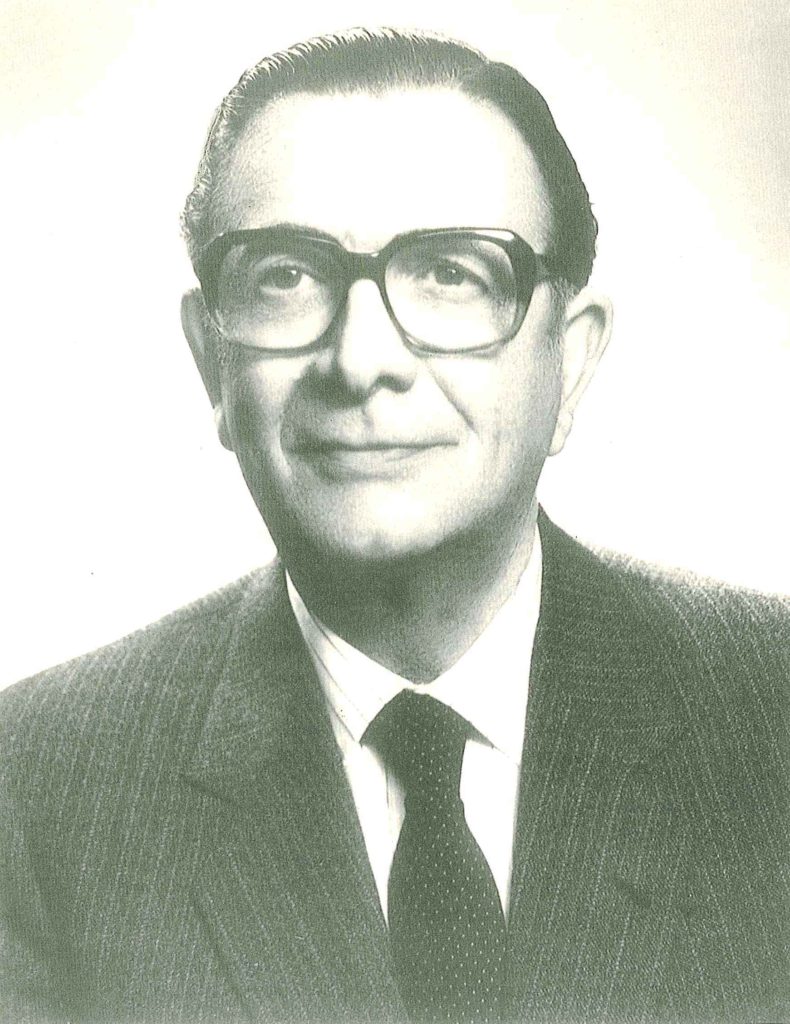
Evagoras.K.Lanitis
Following his studies and upon his return to Cyprus he joined the Lanitis Group, taking up various posts in a number of the Group’s companies, until he took over as CEO and later became Chairman of the Group, founded by his grandfather Panayis Sykas in 1896.
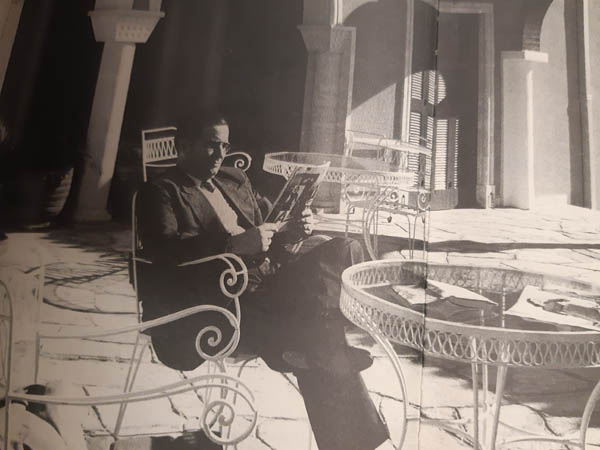
In the 70s and 80s he served for a number of years as Chairman of Popular Bank.
In 1952 he was appointed Consul for The Netherlands, retiring in 1991 from the position of General Consul of the country.
In 1974, during the period between the first and second phase of the Turkish invasion in Cyprus, Evagoras Lanitis was called by acting President Glafkos Clerides to take over the Agriculture and Commerce ministries, in the midst of difficult times, offering valuable service to his country.
He was decorated twice by the Queen of Holland and in 1985 by French PM Jacques Chirac and then President Francois Mitterand.
He was also honoured for his work and contribution by a number of Cypriot and international financial and socio-economic organisations.
Along with his successful business activities, he also developed multi-faceted social action. He made quite a number of donations in education, sport, medicine and archaeology, as he always had a forward vision, putting his country before himself, others and his companies.
Evagoras Lanitis passed away in November 1992.
He was well known for his humanistic approach in the Lanitis Group administration practices, making an effort to communicate frequently and directly with as many Group employees as he could, irrespective of how many there were.
His words of wisdom always stood out, but what was most impressive is the fact that he made them part of his own life, putting them to practice:
‘When working, we’re first thinking about what’s best for the country and then our own interest. That’s because if our country prospers, we will too’.
He also used to say that ‘when we leave this world, we will not be taking what material things we possess and gathered, but what we’ve given, contributed’.
Address.
21 Arch. Kyprianou
Τ.Κ. 3036 Limassol, Cyprus
P.O.Box 50336
3603 Limassol, Cyprus
Phone.
+357 25 820920
